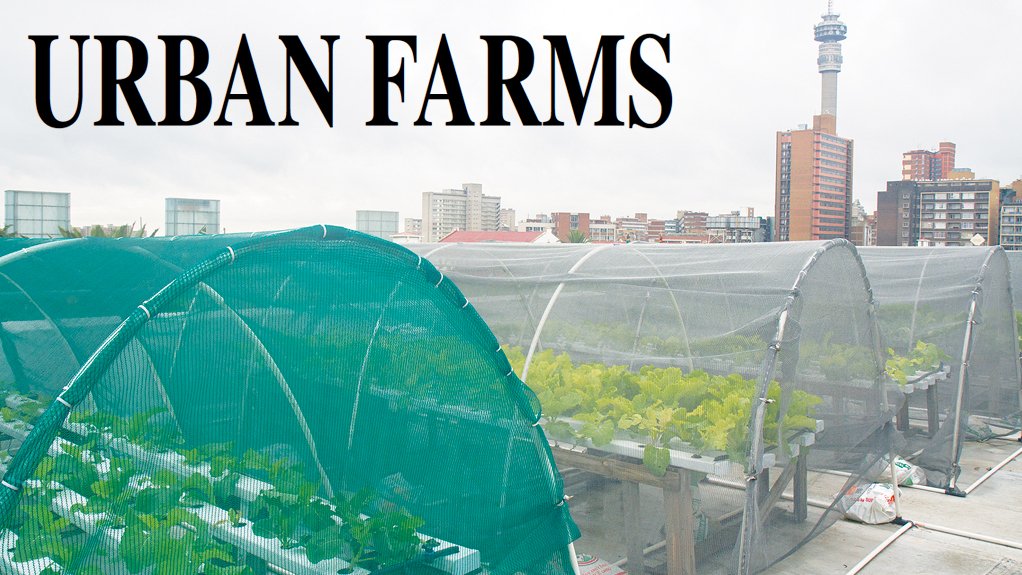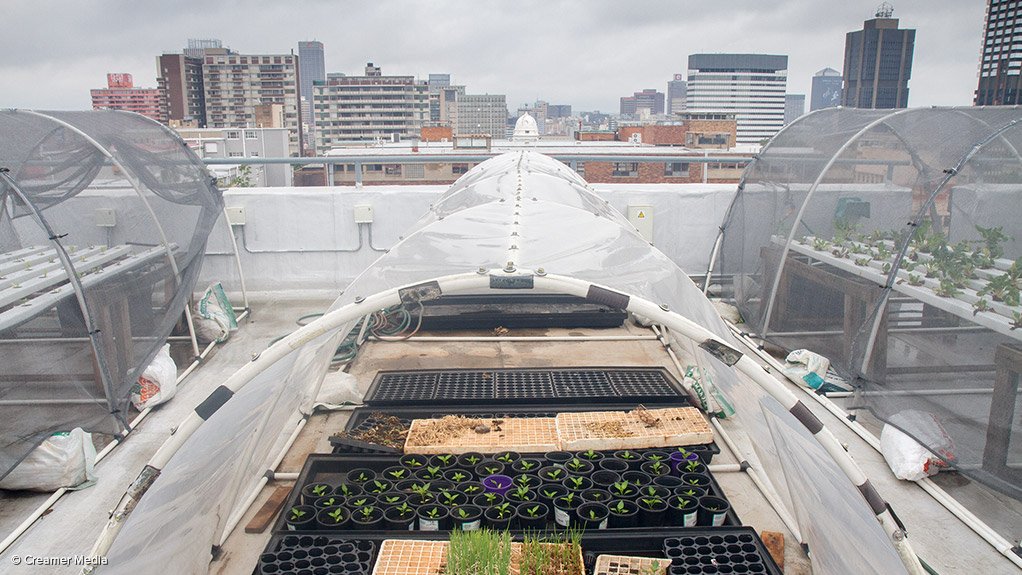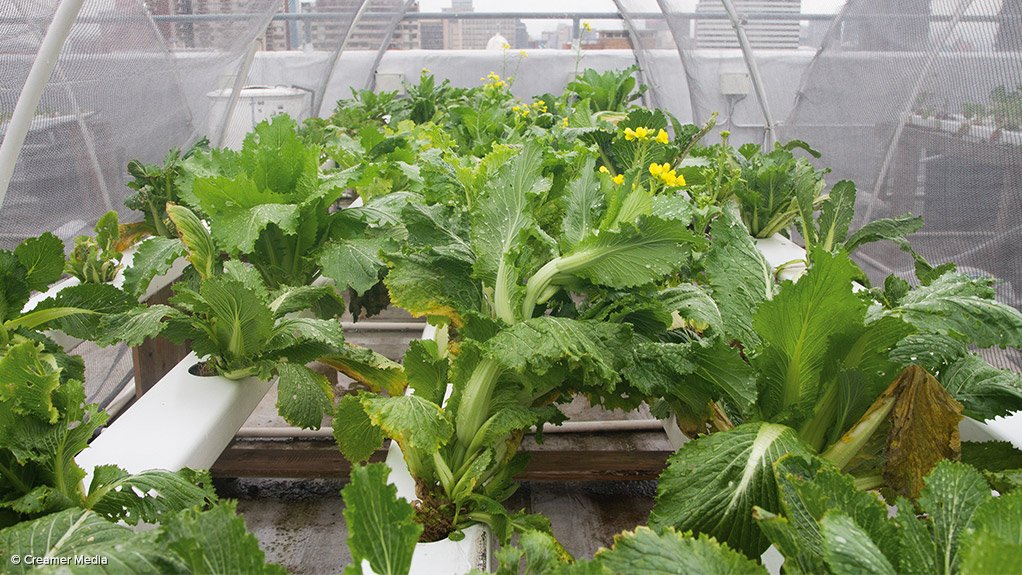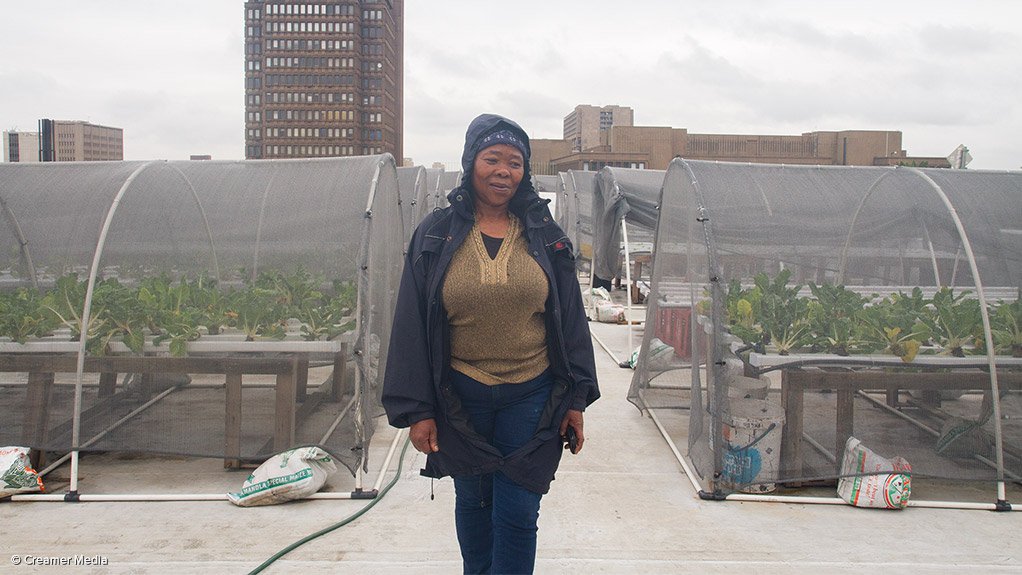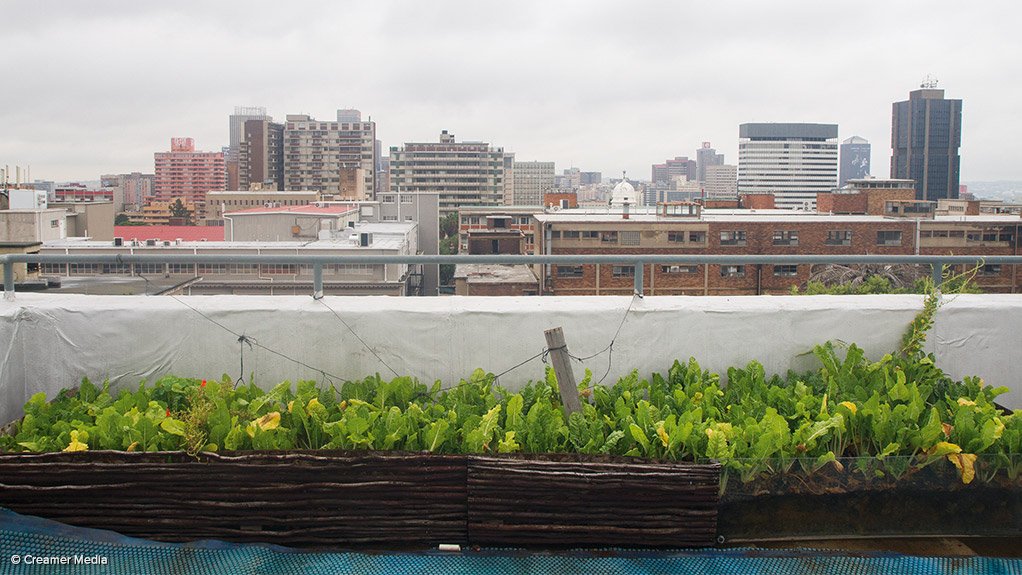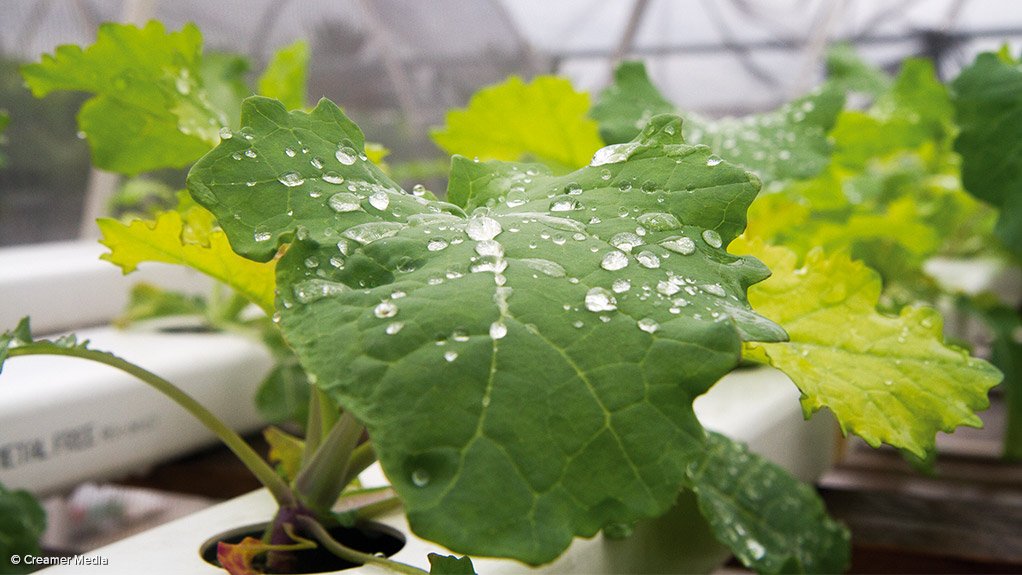Food shapes the daily patterns of city life, and food production in urban and peri-urban areas is increasingly regarded as integral to resilient and sustainable city region food systems, says United Nations Food and Agriculture Organisation (UN FAO) director-general José Graziano da Silva.
“In such food systems, urban and peri- urban agriculture is crucial to the food and nutrition security of poor households, supplying urban residents with fresh, high-value local food, generating employment and creating greenbelts that improve the quality of urban life, and stimulating local economic develop- ment,” he says in the UN FAO ‘Growing greener cities in Latin America and the Caribbean 2014’ report.
Most urban farmers are from low-income households and take up farming as a means of reducing their spending on food and making extra income from sales. In Johannesburg, levels of food security are principally related to household income and the ability to access food through purchase.
Officials of the City of Johannesburg (CoJ) Food Resilience Unit and the Johannesburg Development Agency are, therefore, working to help establish rooftop vegetable gardens to ensure food security for vulnerable people in the inner city and promote entrepreneurship.
The city has several productive urban and rooftop gardens in Bertrams, Alexandra, Braamfontein, Orange Farm and Riverlea, among others. Further, the Johannesburg Property Company and the Johannesburg Social Housing Company have provided space, funding and support for two more rooftop gardens that will be launched this year in the inner city.
These gardens reduce the levels of food insecurity, offset some of the household income that would have been spent on food and often provide some income for participants.
The rooftop garden of the 3 Kotze street Night Shelter for adults, in Braamfontein, located on a flat roof of about 13 m × 52 m with 28 shade-cloth covered tunnels, produces 40 kg of fresh, deveined spinach each week for local restaurants and generates about R800 of revenue. The garden also grows cabbage, rape, morogo, basil, dill, cauliflower, broccoli and lettuce.
The project’s main aim, however, is to produce fresh foods for the local community, generate some income for participants, and donate some of the produce to the homeless shelter.
“Urban farms can help in poverty allevia- tion, job creation and skills development,” says CoJ Food Resilience Unit manager Simon Motsusi.
Effective Engagement
However, growing greener cities with agriculture needs government from national to local levels to incorporate urban and peri- urban agriculture into city development planning, the UN FAO report states.
Governments set urban development policies and priorities. As major landowners and managers of solid wastes and water supplies, they can provide – or deny – the resources needed for urban and peri-urban agriculture.
“To realise urban and peri-urban agriculture’s full potential for generating income, stimulating economic development and delivering food that is safe and of good quality, producers need access to markets and technologies that add value to their produce,” the report emphasises.
The 3 Kotze street project, which is a hydroponic system, is one of several urban farming projects that are helping the city to refine its development and food resilience programmes, as well as its broader social development funding, engagement and support models, says Motsusi.
Meanwhile, Kotze street rooftop garden project leader Catherine Khambule emphasises that the depth of engagement, support and training are crucial to equipping participants with the required skills to grow the vegetables.
“It is how they work with us that makes the difference. Our trainers were accessible and remained supportive and engaged with us even after training. This is invaluable for us, as we experience problems from time to time that our training does not cover,” she states.
Entrepreneurship training and consulting firm Ubuntu Business provided entrepre- neurial and business skills and practical, on-site training and coaching to the members of the urban farming cooperative who work in the Kotze street rooftop garden.
“Skills development is essential and has a huge impact on the success of a project, especially when training individuals who come from different backgrounds,” says Ubuntu Business founder and MD Gary Smith.
Further, the cooperatives that work and maintain these gardens provide a sense of community to people who, in South African cities, are often from different regions of the country.
The gardens, therefore, serve as social networks and centres for personal development, as the participants receive training and have access to the municipality’s other support, training and skills development programmes, he says.
“Hands-on and experiential training enables participants to learn new skills, whether they are well educated or not, but recruitment is important to ensure the sustainability of these projects over many years. This aspect of individual training, development and growth is a powerful tool that cities can use to empower participants, their families and broader communities.”
Impact Potential
Urban and rooftop farming is a viable and sustainable way to produce vegetables and herbs. However, with stable funding and support from governing bodies, urban farming can be leveraged to provide food security, an income, training programmes and resources for urban communities, Smith avers.
Agricultural entrepreneurship development is an effective tool to empower potential entrepreneurs with the skills, knowledge and support they need to start and grow successful agribusinesses, create jobs and support their communities, he emphasises.
However, empowering people with farming skills alone is not enough to ensure sustain- ability and growth, Smith adds.
“Entrepreneurship development, through training and coaching is essential to effectively support beneficiaries. Our programmes aim to address two of South Africa’s biggest challenges, namely food insecurity and unemployment.”
Smith is personally involved in the Kotze street project, but highlights that the sustainability of these projects hinges on timely disbursements of funding, overcoming bureaucratic delays and finding willing and dedicated participants.
The Kotze street garden remains only a pilot project and, using rooftop gardens as places for children to learn about agriculture and botany, for youths to gain work experience and income and for vulnerable people to access education, food and an income, is still a distant goal for the city administration.
“The city has to find a way of making urban agriculture work in each and every space in the city. Since the inner city is filled with buildings, rooftop gardens is one of the ways we are trying to green the city,” Motsusi says.
A specific challenge, he says, is that urban farmers compete directly with fresh produce vendors, who buy vegetables and foods at lower prices from fresh produce markets.
A competitive advantage that urban farms have over commercial agriculture is that the “food miles” – the distance food travels from production to plate – is significantly lower than commercial agriculture, which reduces the need for cold-chain logistics without impacting on freshness and taste, states Smith.
The CoJ Food Resilience Unit states that some of the established urban farms that have transitioned from food gardens to microenterprises are already producing higher value products for local sale.
However, in the next phase of the initiative, the CoJ will aim to introduce agroprocessing into the supply chain of urban farmers and encourage value adding activities.
To do this, it will leverage its network of academic, private and public sector partners to boost food security and job creation. The aim is to use the pilot projects and the network of urban farms and gardens to increase the scale of rooftop and urban farming in the city, and thereby help to ensure food resilience in urban communities, concludes Motsusi.
Edited by: Martin Zhuwakinyu
Creamer Media Senior Deputy Editor
EMAIL THIS ARTICLE SAVE THIS ARTICLE
ARTICLE ENQUIRY
To subscribe email subscriptions@creamermedia.co.za or click here
To advertise email advertising@creamermedia.co.za or click here









